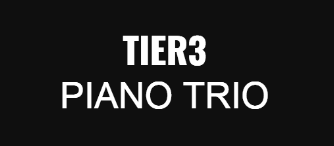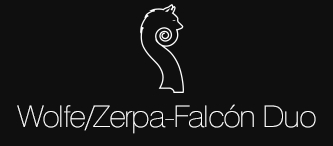

Gunma Symphony Orchestra
With Sibelius’ 2nd Symphony Joseph Wolfe impressed the audience with his clear and direct delivery of the symphony , revealing a real sense for musical structure through his concise and muscular interpretation. His conducting sprung forth with great emotion , expressing clearly the highs and lows of the music. The orchestra responded with a precise and feverish performance. In the final movement , the forceful propulsion to the glorious coda was particularly impressive.
Nagoya Takayama , Ongaku No Tomo

Young and distinguished Englishman Wolfe appeared at the conductor's rostrum for the 5th time with the Japan century Orchestra.I understood why there is increased attention on him.He demonstrated the rationality inherited by his father Colin Davis but also demonstrated originality by making music with great freedom and spontaneity at every turn.He duly carried out the instructions in the score but did not stick heavily to them. For example in the Coriolan Overture and the Symphony he made minute changes to the dynamics to create clarity and balance.He was thorough in bringing out a well crafted performance which was full of life...In the concerto Wolfe employed thrilling contrivances at every turn .For example at the end of the first movement where he brought the bassoon to the forefront of the texture in contrast to the solo violin.This created the effect of large scale chamber music .Yes this was an interesting concert.
Hajime Terada, Ongaku no Tomo

Elgar Violin concerto/ Elgar Symphony No.1
Talented conductor Joseph Wolfe from England made his appearance to perform two masterpieces by Edward Elgar.Wolfe showed his individuality by creating freedom in the music here and there allowing it to breathe, frequently changing from bold to gentler sounds with superb skill thus bringing out Elgar's character.In the Symphony No.1 in particular Wolfe showed his unique skill of using syncopation to drive the music forward rather than making it lag. He also showed glimpses of great imagination and thought by occasionally producing a different balance by changing the dynamics that are written in the score .
Hajima Teranishi

Wolfe delivered a noble British sound, where he not only had the ability to show in a new light a clear structure of the characteristics of each variation, but also an awareness of the tone of the Japanese orchestra.
Performance held on 21st February at the Tokyo Opera City Concert Hall (Shigeru FUKUDA)

Wolfe conveyed in the Elgar work an extraordinary ability to precisely align with the solos by delicate agogic movements. Whereas Wolfe's father Sir Colin was the type to adjust the music from the exterior, Wolfe displayed an emotion-based music making by adapting to harmony changes. Wolfe's conveyance of a strong will for contrapuntal treatment is also his forte. It's been a while since I last heard Urushihara's performance, and her matured music making was nice and pleasant. To hear this massive work of nearly 50 minutes in one go is surely the achievement of Urushihara and Wolfe. Wolfe's contrapuntal treatment in the Sibelius brought a more lively music. That will for contrapuntal treatment running round at the end is surely the 'youth' of Wolfe. The Valse Triste by Sibelius was performed as th e encore piece, where a nice lingering moment remained. Wolfe is a conductor to keep an eye out for in future.
Junichi KUNIDO

My expectations were aroused in the latter half where Dvorak's 'Symphony No. 7' was performed - and my expectations were not betrayed, as Wolfe demonstrated a structure of fabulous sound. Perhaps he thoroughly read and analysed the score, but above all he brought to life each successive individual sound. Nevertheless, he portrayed extremely well the overall structure and expressive flow of the work without being over-analytical. I hear that significant progress has been shown in British cuisine these days, and I enjoyed that taste of excellent 'musical' cuisine under the baton of Joseph Wolfe. I would even enjoy listening to a recording of the Hiroshima Symphony Orchestra conducted by him.
Yumi NOTOHARA, Specially Appointed Assistant Professor at Hiroshima University, Hiroshima City

London Symphony Orchestra / Joseph Wolfe, June 2013
The concert was certainly not lacking in emotional heat. Colin Davis's son, Joseph Wolfe, led the LSO in a really blazing performance of Berlioz's Le Corsaire overture. The most intense moment came right at the end, when Wolfe made Elgar's Sospiri burn with such tragic feeling we were all overcome.
Ivan Hewett, The Telegraph
Berlioz appeared with his overture Le Corsaire, conducted by Davis's son Joseph Wolfe. He'd changed his surname to foster a separate identity, but still proved his father's offspring with those punching arms, care for details, and driving passion. Similar looks, too.
Finally came the bittersweet strings and harp of Elgar's Sospiri -- a late discovery by Davis, who wanted to conduct the piece himself but told Wolfe: "If I don't, you must do it for me." So he did, with heat and heart. Then into the foyer and the wee dram. To Sir Colin!
Geoff Browne, The Times
Davis's son, Joseph Wolfe, conducted a blazing interpretation of Berlioz's Corsair overture, in which the LSO strings were at their silkiest, notably representing the composer whose reputation Davis did more than anyone to raise to its current height; and a piercingly tender interpretation of Elgar's Sospiri, a work Davis wanted to conduct but never got around to.
The Guardian
The LSO was already assembled and welcomed Joseph Wolfe, Sir Colin's son, looking remarkably like his father, and a conductor in his own right. Wolfe conducted with zeal Sir Colin's beloved Berlioz, a tenderly loved and exhilarating account of Le corsaire. To close, Joseph Wolfe returned for Elgar's Sospiri. It seems this was a recent discovery for Sir Colin who said to his son that he hoped to conduct it, but if he didn't, then he must. Never mind that the organ part wasn't included, this 'sigh' of an elegy for strings and harp, played to a photograph of a happy and smiling Sir Colin, was given with eloquence, something at once private yet universal, and made for a rapt envoi.
Colin Anderson, ClassicalSource.com

Young British conductor Joseph Wolfe produced some warm, rich and exciting music at his Brighton debut with the London Philharmonic Orchestra. He strode to the platform, raised his baton, and began with a magnificent reading of Franz Schubert's Unfinished 8th Symphony. Wolfe swayed, leapt and jumped around, injecting great fire and urgent playing of quite exquisite music. Although there may be no great depths in a Saint-Saens cello concerto, Dutch cellist Pieter Wispelwey certainly produced some fast fireworks in his account of the second Cello Concerto. To end, Wolfe got yet another magnificent sound from the orchestra in a passionate performance of Sibelius' First Symphony. It was an epic account that must make him a future star.
Mike Howard, The Argus - Brighton

Joseph Wolfe appeared with the London Philharmonic Orchestra at Queen Elizabeth Hall in a solid programme of works by Schubert, Saint-Saëns and Sibelius. Wolfe is a son of Colin Davis, but such conducting successions are not uncommon…the conductor to whom Wolfe bears a striking physical resemblance, however, is Gustav Mahler. He came across as a sympathetic figure, warmly impassioned and well prepared.
Paul Driver, The Sunday Times

From the opening bars of a focused account of Mozart's Don Giovanni Overture , it was evident that rising British conductor Joseph Wolfe can aim for high intensity and control it. That was one of the characteristics of Sibelius's Symphony No 1, which closed the concert. This gripping performance had plenty of rhythmic drive, and Wolfe's way of creating long-term momentum was successful…such strong and committed playing thoroughly deserved the warm applause.
It was hard to pinpoint exactly how the dynamics of the relationship between soloist, conductor and orchestra were working, for everything seemed to work as one (Tasmin Little's / Elgar's Violin Concerto). The complexity of Elgar's orchestral scoring was subtly handled, with everyone listening as much as they were reading.
The way Elgar knits the solo part into the orchestral textures came across beautifully. This was a rarity - a performance whose completeness was something to treasure because, with any orchestra, conductor or soloist, such transcendence can never be commonplace.
Martin Adams, The Irish Times

Japan Century Symphony Orchestra (162nd subscription concert)
June 9, 2011, The Symphony Hall
Joseph Wolfe, who conducted with a torrent of passion but without destroying form, starkly brought forth a well-modulated structural outline envisaged by Beethoven as well as an abundance of emotion with orthodox candour. The orchestra capably responded to Wolfeísdemands and with a densely rich sound and ensemble, the result was a very persuasive performance.
Takayoshi NAKAMURA

Tokyo Metropolitan Symphony Orchestra (718th subscription concert)
June 15, 2011, Suntory Hall
Conductor Wolfe succeeded in subtly drawing out the quintessential English lyric beauty from the Tokyo Metropolitan Symphony Orchestra in a solid and lovely performance (Alwyn's 'Autumn legend' for cor anglais and strings). Meanwhile, though Sibelius Symphony No. 7 is quite frankly a symphonic work with a peculiar concept as the originality of the orchestration stands out, the subtlety of the structure and form is clearly understood, and Wolfe vividly brings forth the best part of the work with mellowness. Such a very persuasive performance was a nice windfall.
Hiromi SAITO

The 525th subscription concert
January 29 & 30, 2010
Sapporo Kitara Concert Hall
Wolfe's Tact Responds To The Audience's Expectation:
I found Wolfe's wisdom in the choice of this work as the opening piece (Berlioz's Le Corsaire Overture). The fast passage at the beginning was refreshing, and it was followed by the graceful theme in the smooth performance. The audience's expectation from …{Joseph Wolfe} was naturally immense, and he responded with a performance that was dynamic, yet minute, and solid, yet vivid. Contrary to a performance that unnecessarily emphasizes the popularity of the work, his interpretation faithfully reproduced the composer's intentions embedded in the score. I was deeply impressed by his attitude toward music making. I reckon, however, that it takes an exceptionally high spirituality for Wolfe to uphold this attitude, especially considering his young age. Accolades should be given to the Sapporo Symphony Orchestra for responding to the conductor with superb performances. This concert proved that only excellent conductors could make the orchestra perform with their full abilities.
Takao Nakamura, Hokkaido Shimbun Newspaper, February 10, 2010

Sapporo Symphony Orchestra
525th subscription concert
January 29, 2010
Sapporo Concert Hall
Wolfe's talent was already obvious from this piece (Berlioz's Le Corsaire Overture). The masculine sound was full of bursting vitality. I missed Hagner's performance. The second half of the program was Sibelius Symphony No. 2. Wolfe eliminated romantic sentiment from the second movement with exceptional persuasion. Also, he performed the introduction to the first theme of the finale free from any sort of tenaciousness… I was overwhelmed by the power, which gushed out of the sound.
Tomohiko Hondo

September 10, 2009
The Symphony Hall, Osaka
The performance of Haydn was also full of energy (Symphony No. 104 "London"). The exposition was repeated, giving a strong impression of period performance. The distinctive solid effect was this conductor's characteristic. Sharp rhythm and clear articulation - another lively, sophisticated rendition.
Tadao Koishi, Ongaku no Tomo, November 2009

The 'Unfinished' Symphony has become, unfortunately, aural wallpaper, so popular, and so frequently is it heard. It gives special delight, therefore, to report pleasure (hardly the appropriate word on hearing this apex of Schubertian expression) from Joseph Wolfe's subtle and absorbing interpretation that was here beautifully played. The quiet opening on double basses gave way to a nervously inclined statement on violins that launched the wide-ranging themes of the first movement. Sometimes fierce, sometimes calm, all sides of Schubert's character were on display and portrayed with the right sense of balance and integrity. Likewise the second movement, Andante con moto, was true to its title and never lingered. Wolfe found a range of expression from his judicious choice of tempos that lifted the spirits and reinforced the essential nature of well-being in the music. It was a fine performance.
What was remarkable about the performance under Wolfe was how the indebtedness to Tchaikovsky was played down in favour of a true Sibelian sonority even in the often-mushy slow movement (Sibelius's First Symphony). Wolfe accentuated the varying woodwind themes above the string mêlée, which produced a true freshness to the fabric of the work. Each movement had an authentic momentum that gave the whole piece a semblance of formal unity rare in most interpretations. The coda in the finale was a true summing up of the emotional roller coaster heard before. Sibelius subsequently produced many more truly idiosyncratic masterpieces but none was to reveal a romantic coherence that lies at the heart of his First Symphony. It is to Wolfe and the LPO's credit that this character was bought to the fore in this wonderful performance.
ClassicalSource.com


















